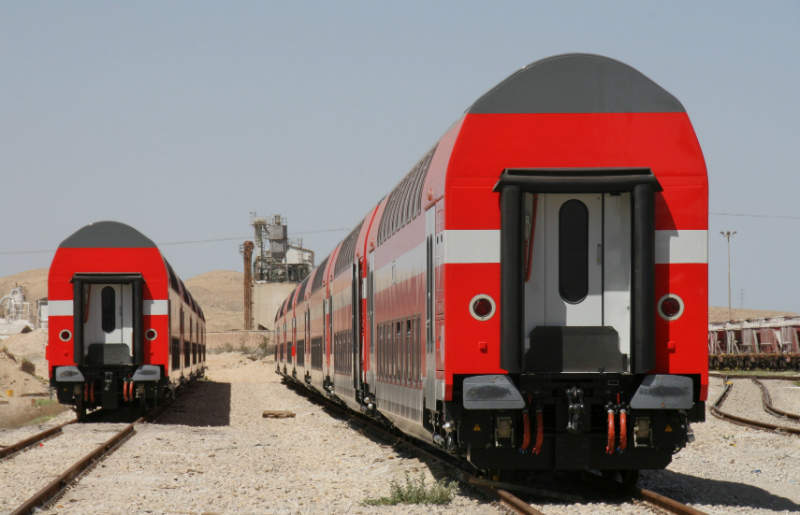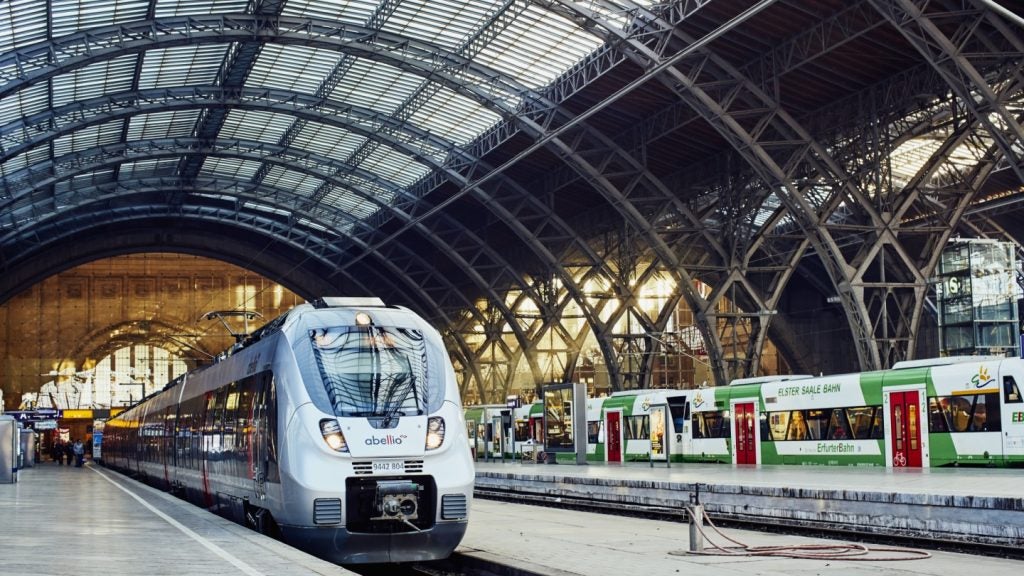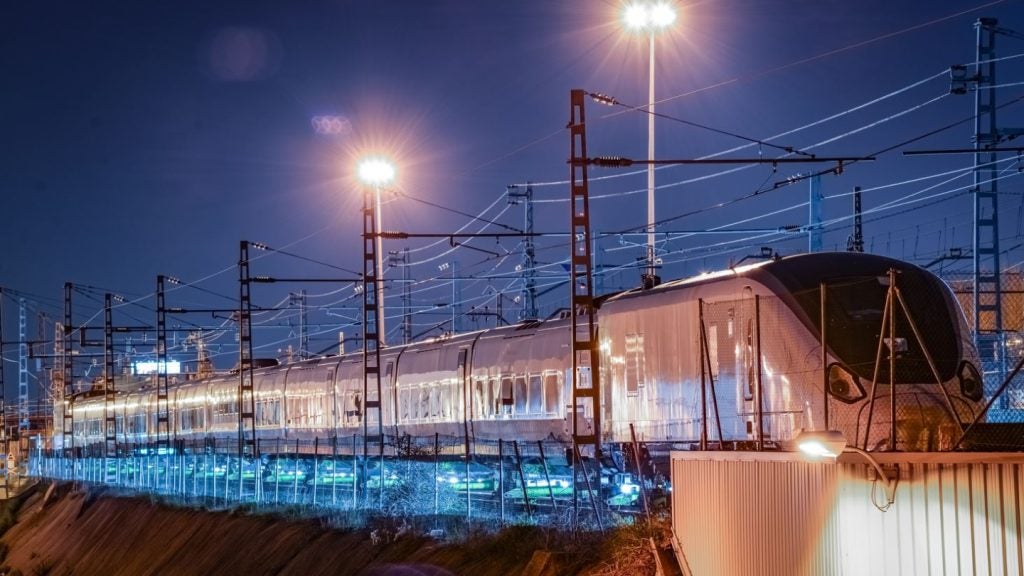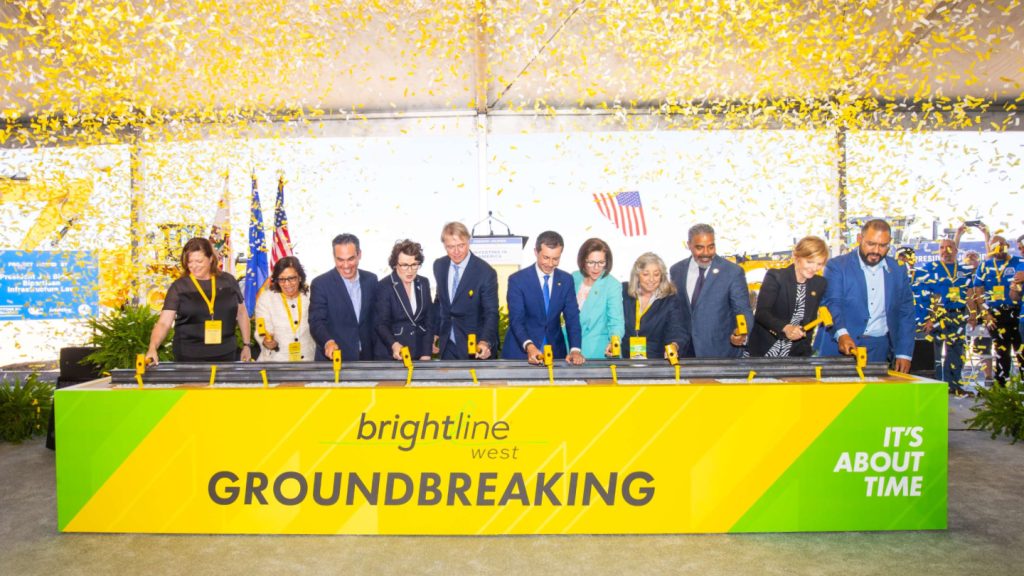
The Jerusalem–Tel Aviv rail line has been something of a slow burn. The so-called A1 project was conceived way back in the 1990s and construction began in 2001. Since then, financial difficulties, environmental conundrums and the unique political sensibilities of the region have pushed its launch date back further and further.
But this January, Israelis were met with a pleasant surprise. Transportation Minister Yisrael Katz announced that the new Jerusalem–Tel Aviv line would launch on 30 March 2018, the exact date forecast by former Israel Railways (ISR) CEO Boaz Tzafrir in 2014. The minister recently participated in a first test run of the railway, which he christened the King David Line, alongside a fleet of journalists.
“On this upcoming Passover, we will allow all the people of Israel to come en masse to Jerusalem on the high-speed rail from Tel Aviv,” said Katz in a press statement.
In the years leading up to the railway’s opening, Israel Railways has led media tours and even opened a visitor’s centre to expel the benefits of its new landscape-changing line. Nevertheless, sceptics are still holding their breath for another potential pushback.
Relieving the burden on Israeli highways
The relative difficulty of moving between Tel Aviv and Jerusalem has spurred a great deal of support for a new high-speed rail system. Until now, Israel’s two major cities have been connected by the ancient Jaffa–Jerusalem railway, which takes passengers on a scenic but painfully slow route around the Judean hills.
Many commuters have, therefore, resorted to public buses or driving, which has caused massive congestion issues on Israel’s highways. And in 2016, a report by the Organisation for Economic Co-operation and Development (OECD) revealed that Israel has the greatest average traffic density among countries researched by the organisation.
How well do you really know your competitors?
Access the most comprehensive Company Profiles on the market, powered by GlobalData. Save hours of research. Gain competitive edge.

Thank you!
Your download email will arrive shortly
Not ready to buy yet? Download a free sample
We are confident about the unique quality of our Company Profiles. However, we want you to make the most beneficial decision for your business, so we offer a free sample that you can download by submitting the below form
By GlobalDataIsraeli politicians claim the Jerusalem–Tel Aviv high-speed rail will relieve pressure on highways between the cities. The 56km route cuts a more direct path through the steep hills separating the coast from Jerusalem. Double-decker trains carrying up to 1,000 passengers will beam along the line at 160km/h, taking them from one city to another in just 28 minutes. Driving, by comparison, takes 75 minutes on average.
“We hope that the new high-speed line will be a success story for ISR and thousands of commuters will change from car to train, creating the need for more railway capacity,” says Yossi Daskal, Bombardier chief country representative for Israel.
Katz has also speculated that the train could help encourage Israelis living on the coast to set up shop in Jerusalem, boosting the city’s economy while reducing housing pressures in Tel Aviv. Though house prices have started to decline, according to the Central Bureau of Statistics, the cost of living or renting in Tel Aviv is still incredibly expensive.
Providing easier transport could, therefore, bring in business from the city – generally seen as Israel’s tech and finance centre – to the more religious and conservative city of Jerusalem.
Project pitfalls and controversies
To forge a path for the King David Line, five tunnels have been hewn from the earth by several enormous boring machines. One of the tunnels stretches to 11.5km, making it the longest in the country. Also, eight bridges have been built to support the railway, one of which towers 100m over the Arazim Valley. Meanwhile, the new Binyenei Ha’uama station in Jerusalem will receive high-speed trains on platforms situated 80m underground.
These eye-popping feats of engineering were necessary for the high-speed railway, which couldn’t feature steep inclines and needed to remain at the same gradient throughout the entire route. However, this bumped up the price of the project so substantially that it required a re-evaluation in 2008, causing a significant delay to tunnelling operations. In January this year, ISR claimed that the overall cost of the project was thought to be NIS7bn ($2bn), more than double the starting estimate.
Forging a path through mountains also led to environmental issues, one of which was the decision to build a bridge over the Yitla Stream in the Judean hills. Environmental groups led by the Society for the Protection of Nature in Israel expressed concern about the potential damage tunnelling would cause to the region, which runs alongside a national park. Petitions against the line were rejected, but ISR was still forced to change the concrete beam design for the bridge to a balanced cantilever one, supported by a single set of columns.
Further, the railway has also seen a backlash from religious and political angles. Two separate sections of the railway pass through the West Bank – the landlocked territory bordered with Jordan and the Dead Sea in the east of Israel – which is also claimed by Palestine. In a 2010 report, activist organisation the Coalition of Women for Peace argued that the project was ‘unlawful’ and ‘unethical’ because it commandeered land from Palestinian citizens to create a rail line exclusively for Israeli passengers.
The future of the King David Line
In the first few months of operation, trains will run twice an hour between Jerusalem’s Binyenei Ha’uma station and Hagana station in Tel Aviv, stopping along the way at Ben Gurion Airport. Eventually, this is expected to increase to six trains per hour during peak times, according to ISR.
Nevertheless, there is still work to be done. In December, Katz announced a plan to extend the line to Jerusalem’s Western Wall. The scheme will involve excavating a 3km tunnel beneath the historic Old City, constructing two underground stations and naming one of them after Donald Trump. Unsurprisingly, this late-stage development has raised a few eyebrows from religious groups.
However, one of the main points of contention in the run-up to launch has been electrification. The high-speed line will be the first heavy rail line in Israel to be fully electrified, a necessity given the potential dangers of sending pollution-emitting diesel locomotives through a 11.5km tunnel.
On the one hand, the media has reported ISR’s success in securing electric locomotives for the line. Bombardier Transportation, which has been helping upgrade and test the operators’ existing vehicles in preparation for the launch, recently signed a deal to provide 54 double-decker coaches for the line by 2020.
“During the test runs, the Bombardier project team worked together with Israel Railways to ensure its smooth operation on the new infrastructure,” says Daskal. “The TRAXX locomotives are the first electric locomotives operating under 25kV in Israel, combined with Bombardier TWINDEXX Vario double-deck coaches.”
However, Israel’s State Comptroller recently posited that the converting the railway line from diesel to electric could take another two years, citing an internal report by ISR. This claim has since been denied by a representative from national infrastructure firm Netivei Israel, who said many of the issues cited by the comptroller have already been fixed. Nevertheless, the report has led critics to speculate that the project has been rushed in order to open on time, possibly at the expense of safety.
Israel Railways was contacted but unable to comment on the current status of the King David Line. As such, it’s currently unclear whether thousands of Israelis will be making a high-speed pilgrimage to Jerusalem in time for Passover. However, even with the State Comptroller’s report, the overall impression is that the 17-year project is relatively close to its conclusion.
At the very least, the Israeli Transport Ministry has thrown its citizens a bone, pledging that journeys will be free in the first three months of the train’s operation, and discounted by 50% until the line’s official completion.






